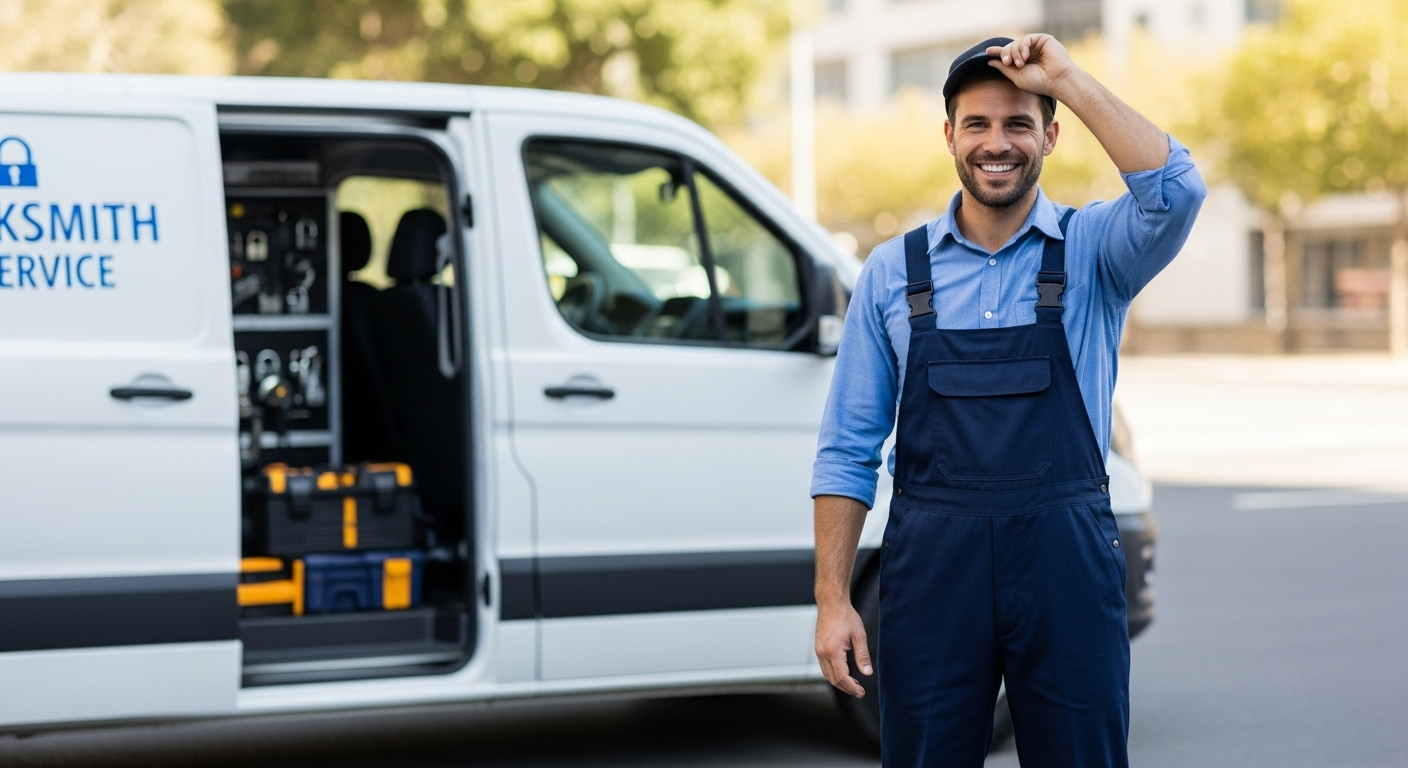Industrial facilities often house expensive machinery, critical tools, and valuable raw materials. With the increasing risk of theft, vandalism, or unauthorized access, safeguarding this equipment is more important than ever. One of the most effective ways to protect your industrial assets is by using high-security locks specifically designed to withstand force, manipulation, and weather conditions. In this guide, we’ll walk you through how high-security locks can help, what options are available, and practical steps to ensure your facility remains secure.
Why Industrial Security Matters
Industrial theft is a growing problem in many areas, leading to financial loss, work delays, and even safety risks. From construction sites and warehouses to factories and utility buildings, any facility storing valuable equipment is a potential target. Unlike standard home locks, industrial settings require a more durable and strategic approach to security. High-security locks not only deter break-ins but also serve as a physical barrier against internal threats, sabotage, or tampering.
Understanding High-Security Locks
High-security locks are engineered to resist picking, drilling, bumping, and forced entry. They often include unique keyways, reinforced materials, anti-manipulation features, and sometimes even electronic access systems. They’re suitable for gates, storage rooms, equipment sheds, electrical panels, and other critical access points within an industrial environment.
- 🔐 Drill-resistant cylinders: Prevents penetration with standard tools.
- 🔐 Restricted keyways: Keys cannot be duplicated without authorization.
- 🔐 Anti-bump features: Reduces vulnerability to lock bumping techniques.
- 🔐 Weatherproofing: Ideal for outdoor equipment exposed to the elements.
- 🔐 Audit-trail capabilities: Available in digital locks to monitor access logs.
Top Types of High-Security Locks for Industrial Use
Choosing the right lock depends on your equipment type, access requirements, and security level. Here are common options:
- 🛠️ Padlocks: Heavy-duty padlocks with shrouded shackles are ideal for storage units and mobile equipment.
- 🛠️ Deadbolts: For office doors or internal storage spaces that need added security.
- 🛠️ Electronic locks: Keypad or smart locks with codes or badges reduce the risk of key duplication.
- 🛠️ Cam locks: Often used for securing toolboxes, cabinets, and small compartments.
- 🛠️ Key control systems: Advanced locking systems that allow you to restrict who can duplicate or use keys.
Best Practices to Safeguard Equipment with High-Security Locks
Even the best locks need a strategic plan to maximize their effectiveness. Here are some practical tips:
- Conduct a full security audit: Walk through your facility to identify all vulnerable points. Prioritize entryways, tool storage, perimeter gates, and portable machinery.
- Install locks on all access points: Every door, cabinet, gate, and container storing valuable equipment should be secured.
- Limit key access: Only trusted staff should have access to keys or codes. Use restricted keyways to prevent unauthorized duplication.
- Set up surveillance and lighting: Locks work best in combination with cameras and motion lights to discourage tampering.
- Use lockout/tagout systems: For equipment undergoing maintenance, a LOTO system ensures that machines remain deactivated and secure.
- Inspect regularly: Check locks for signs of wear, rust, or tampering. Schedule routine maintenance for both physical and electronic locks.
Benefits of High-Security Locks for Industrial Sites
Investing in quality locks offers long-term benefits for your business:
- ✅ Reduces theft and vandalism – Protects against both internal and external threats.
- ✅ Boosts employee accountability – Monitored access ensures responsibility and traceability.
- ✅ Lowers insurance costs – Some insurers offer discounts for facilities with improved security.
- ✅ Peace of mind – You can focus on operations knowing your assets are secure.
- ✅ Compliance with safety regulations – Properly secured sites meet safety standards in many industries.
What to Avoid When Securing Your Equipment
Be cautious of the following mistakes, which can compromise your equipment’s safety:
- ⚠️ Using standard household locks – These are not built for industrial use and can be bypassed easily.
- ⚠️ Leaving keys unsecured – Keys should not be left in drawers or openly accessible locations.
- ⚠️ Delaying lock upgrades – If you notice wear or outdated technology, replace locks immediately.
- ⚠️ Relying solely on locks – Combine with surveillance and alarms for full coverage.
Working with a Professional Locksmith
Securing industrial equipment often requires professional guidance. A commercial locksmith can evaluate your site, recommend the most suitable high-security lock systems, and even help with installation and routine maintenance. Make sure to work with licensed locksmiths who specialize in industrial security.
They can also setit up master key systems, install keyless entry, and provide key control programs that make it easier to manage access across departments or shift rotations.
Prioritize Protection with the Right Locking System
Safeguarding your industrial equipment is not just about protecting assets – it’s about ensuring uninterrupted productivity, keeping your staff safe, and preventing costly incidents. High-security locks offer a smart, affordable, and scalable solution to fortify your facility. Whether you’re upgrading outdated locks or building a new security system from scratch, make high-quality industrial locking systems a priority in your operations plan.
Don’t wait for a break-in to realize the importance of robust security. Invest in the right locks today and secure your facility for the long run.

